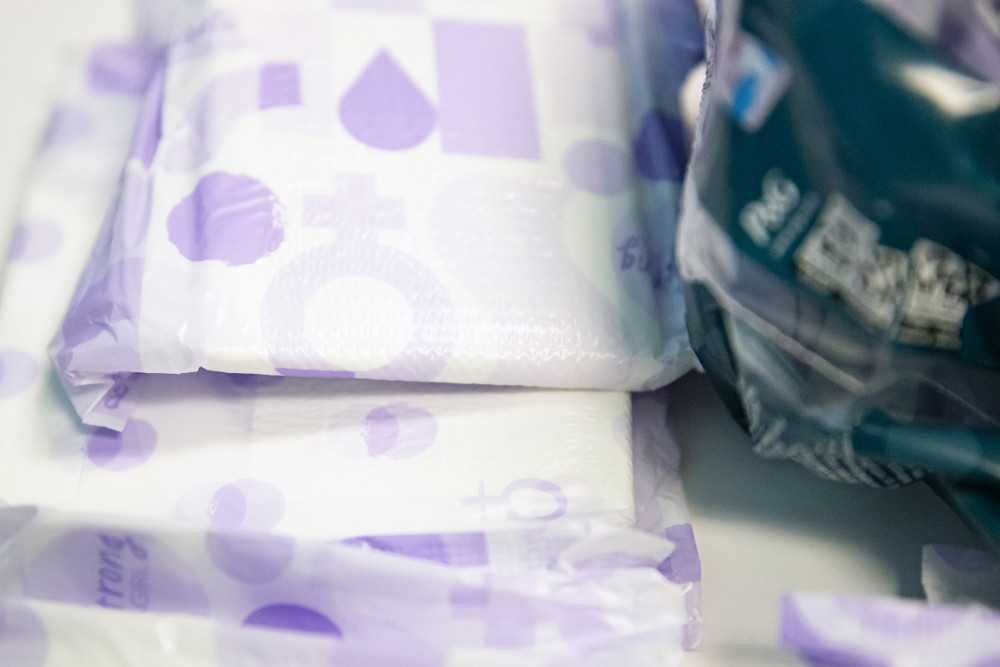By Elizabeth Wellington
The Philadelphia Inquirer
WWR Article Summary (tl;dr) Elizabeth Wellington takes a look at the effort underway to remove the shame around periods as well as the way some companies are tackling gender inclusivity in marketing.
The Philadelphia Inquirer
Admittedly when I learned last week that Always planned to drop the Venus symbol from its packaging, I was confused, if not slightly miffed.
It wasn’t because I would miss the symbol of womanhood on the individual product’s wrappers. (Honestly, I’d never even noticed, and Always is my brand.) But I wondered aloud, “If having a period isn’t a woman thing, then please, tell me, what is?”
But today’s reality is blessedly different than that of my grandmother’s, my mother’s, or even my own teenage years. And this is it: Just because I identify my monthly with my womanhood, it doesn’t mean that all people who menstruate feel the same way.
And this brings us to Always’ gutsy move and statement:
“Not everyone who has a period and needs to use a pad identifies as female,” Procter & Gamble, Always’ parent company, said in a statement last week, a clear nod to transgender men and non-binary people. “To ensure that anyone who needs to use a period product feels comfortable with Always, we’re adjusting our pad wrapper design as part of our next round of product changes.” The change will start in the early months of 2020.
I applaud Always for its bravery in doing the right thing. Maybe it’s not 100% altruistic: Marketing and advertising are about increasing sales. But when a bottom line is driven by inclusivity, that’s a win for everyone, especially when the effort ends up spearheading a progressive shift that some of us weren’t even aware we needed to make.
Always is not alone in its push to examine how we view gender roles. There was the “We Believe” ad by Gillette, another P&G company, that in January took examples of what has been acceptable men’s behavior, mansplaining, bullying, and gawking, and rightly labeled them as toxic masculinity. How dare a man’s brand kowtow to the #MeToo movement, critics loudly complained. Ethics has no role in advertising, others lamented.
Then Thinx period-proof underwear launched a campaign in early October that dares to ponder, “If everyone got their period … ” The minute-plus spot shows men dealing with the perplexities of stained bed sheets, asking strangers for a tampon, and the awkwardness of whispering into a lover’s ear, “I’m on my period.”
“We wanted to think of a world where everyone had periods in an effort to normalize them,” explained Siobhan Lonergan, chief brand officer of Thinx.
Thinx, which launched in 2015, is super-absorbent underwear that eliminates the need to wear a pad or tampons. It comes in several styles, including hip-huggers and bikini briefs, and the boy-short style was specifically designed for people who don’t identify as women but still menstruate.
“We’ve been told from such a young age that periods should be hidden, that they are something to be ashamed of,” Lonergan said. In fact, there’s a part of the Thinx commercial where a man is walking through a locker room with a visible tampon string peeking out of his underwear. Certain networks asked the company to edit it out.
“It’s evident in the way we hide our tampons up our sleeves when we go to the restroom at work, or constantly check behind us for leaks or stains. We want to live in a world where women are free to talk openly about their periods, their health, what they go through.”
Why are we now just starting to take the shame out of periods, though? Women have been menstruating since the beginning of time. It seems that it took trans men speaking out for periods to suddenly become accommodated.
Whatever the reason for the change, it’s still a good thing.
Because maybe it’s like Victor Hugo once said: “There is nothing more powerful than an idea whose time has come.”
The concept doesn’t stop here.
Pyramid 7 makes boxers that allow for transgender men to use maxi pads.
The University of Pennsylvania is making menstruation less taboo on its campus. For the last two years, the university has ensured that everyone, no matter their gender identity, can easily get their hands on menstrual products when they need them.
They are free in 14 places throughout campus, including several all-gender bathrooms. And coin-operated machines can be found in more than 60 locations.
And Penn Women’s Center director Sherisse Laud-Hammond said the center is figuring out ways to market the Women’s Center as a place for everyone, even cis-men. But why? I asked. Shouldn’t its first priority be toward making sure women are comfortable?
“Change doesn’t happen when only the person impacted speaks out,” Laud-Hammond said. “It’s not only women who need to speak out. It’s also our allies,” she said referring to the spectrum of trans men, trans women, non-binary, and LGBTQ and even some heterosexual men who may feel put off by its current women-centric branding. “Allies and the rest of the community need to stand with women. Change with women will impact the world.”
When it comes to menstruation, we need to normalize the experience for every body involved. It will make it easier for trans men or non-binary people. And in the process, the rest of us will continue to address our biases, especially the ones we didn’t know we still had.
___
Distributed by Tribune Content Agency, LLC.














































































































































































































































































































































































